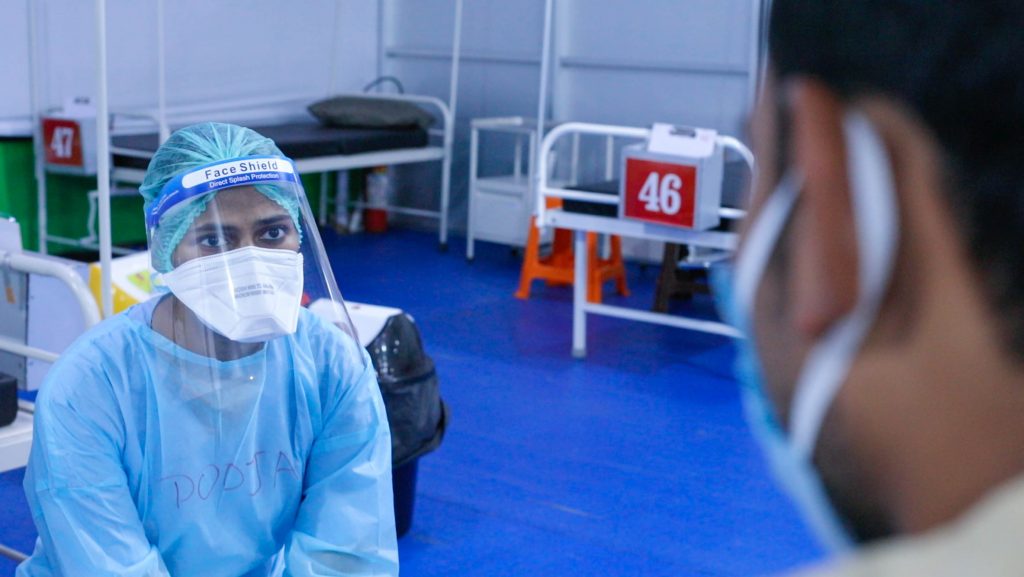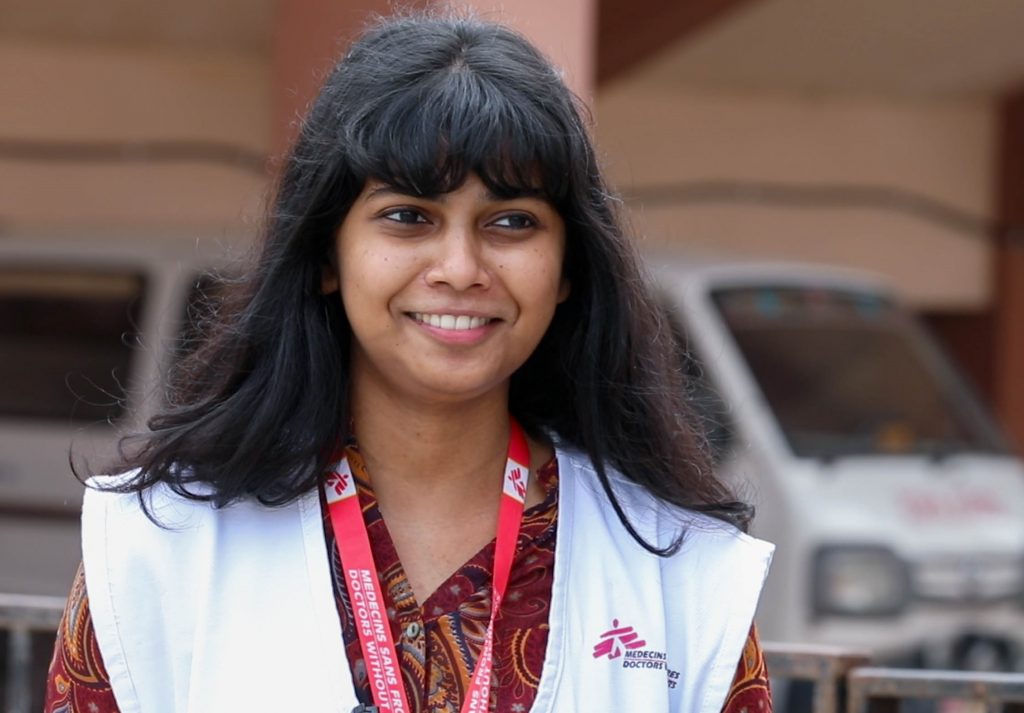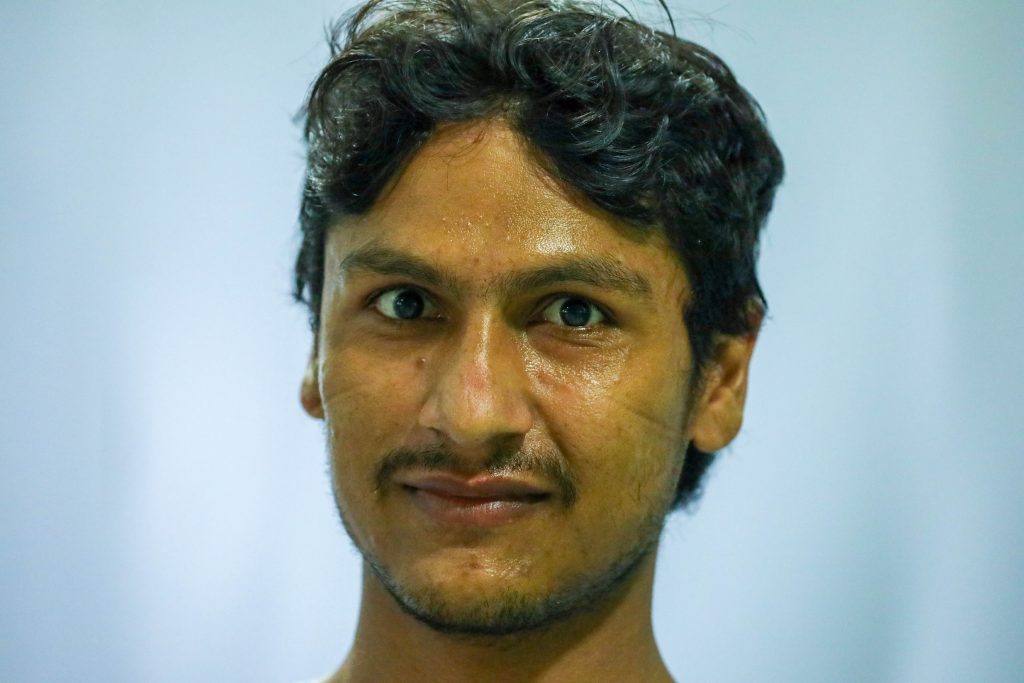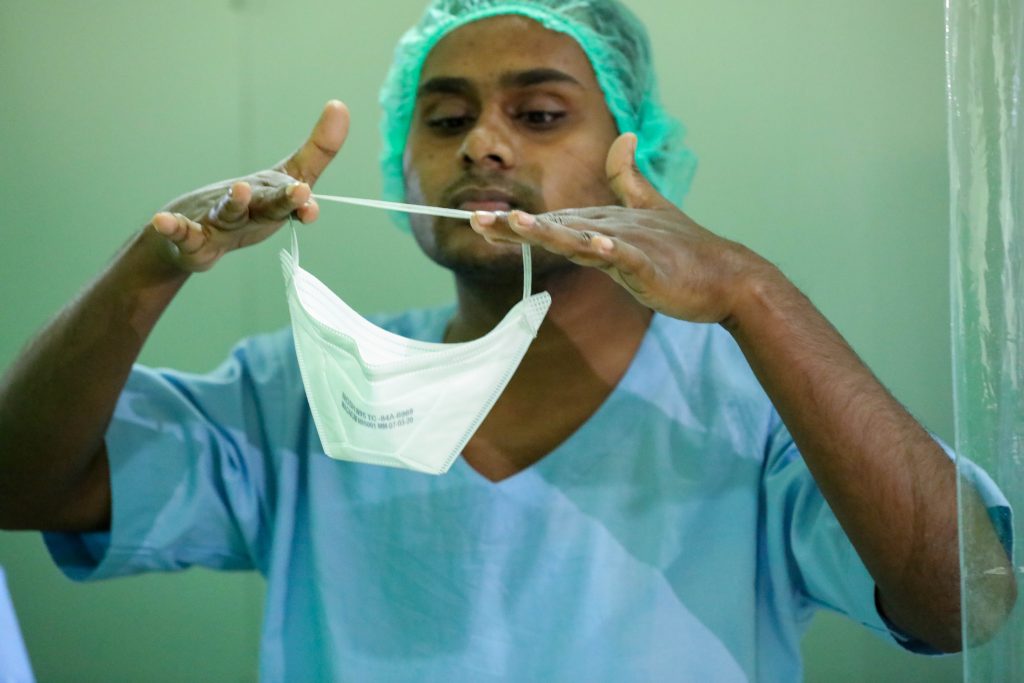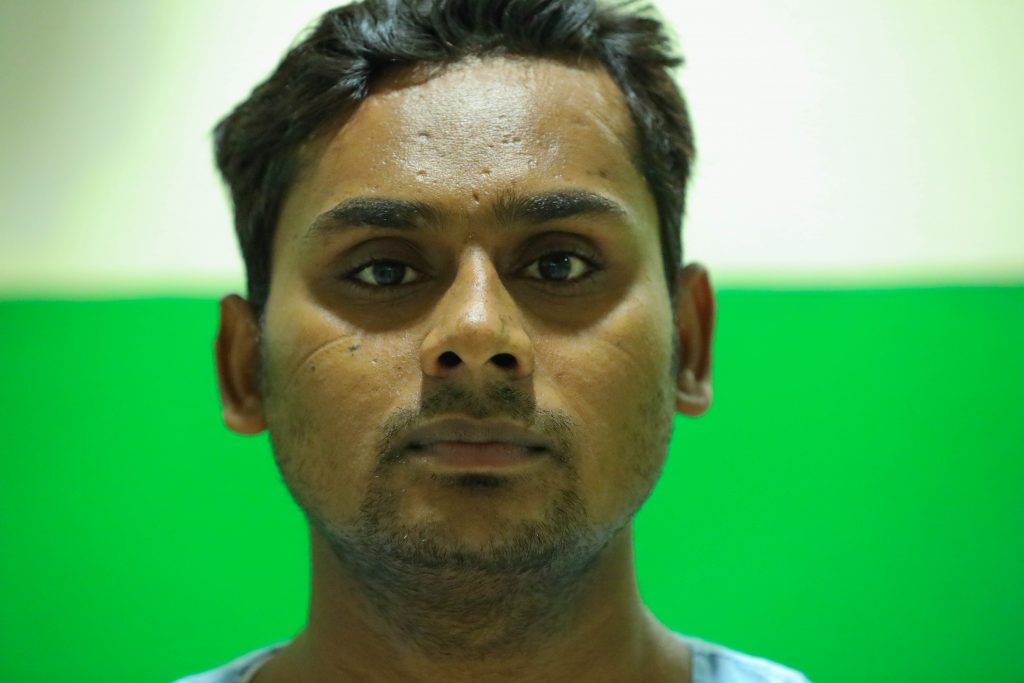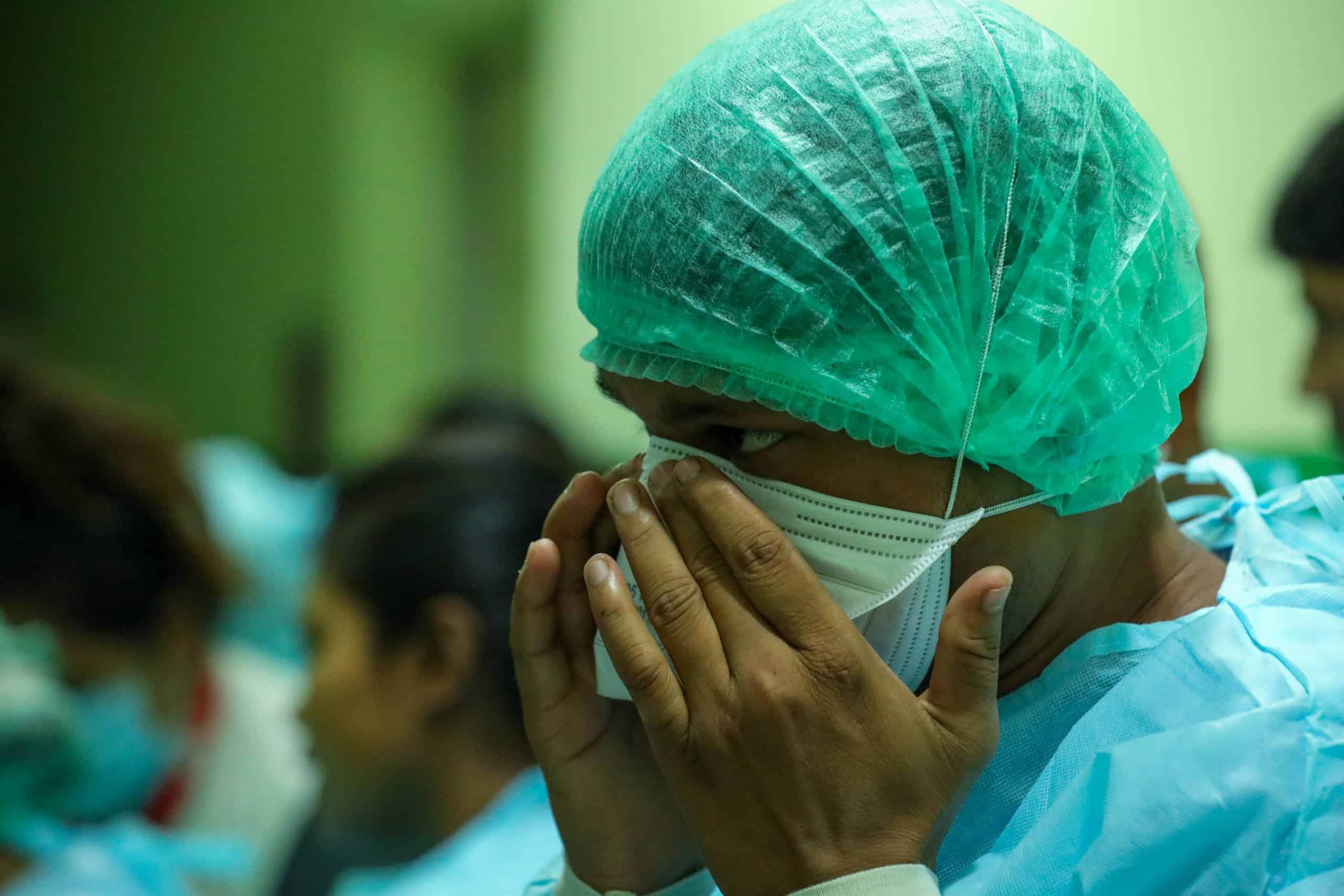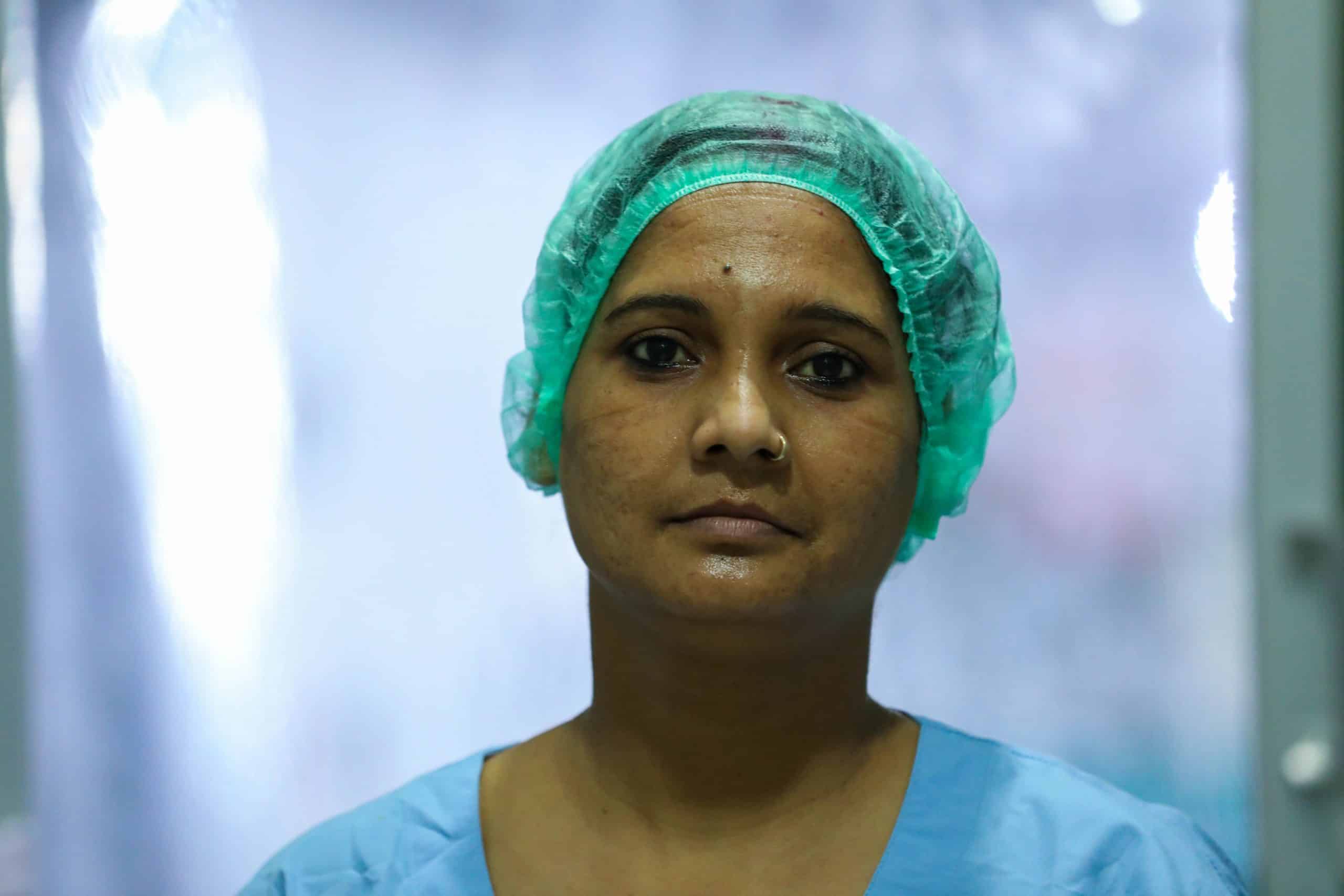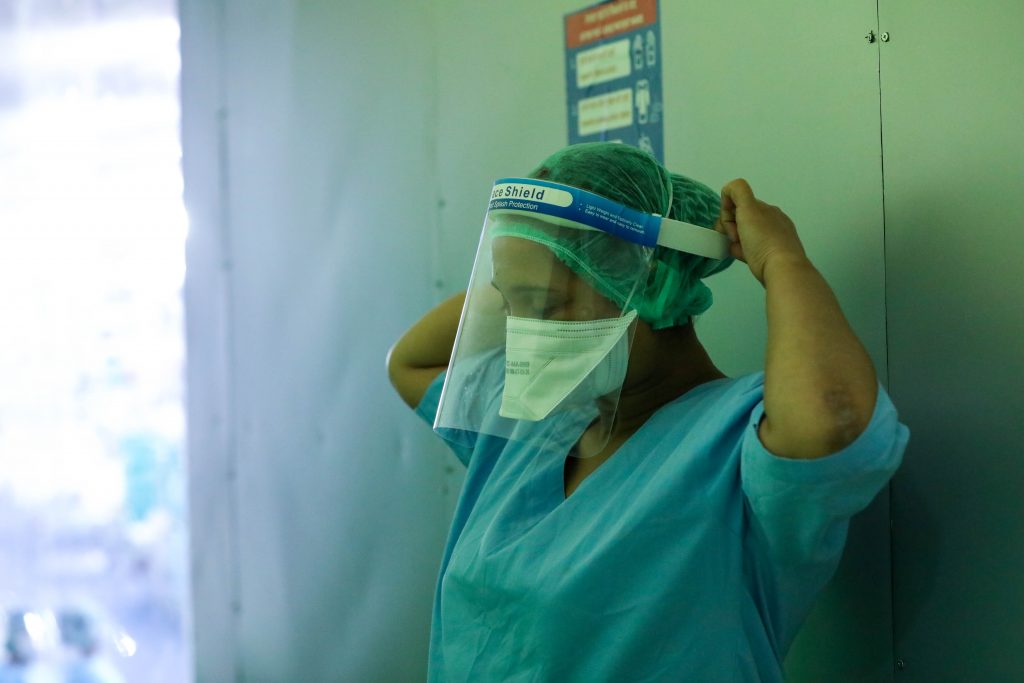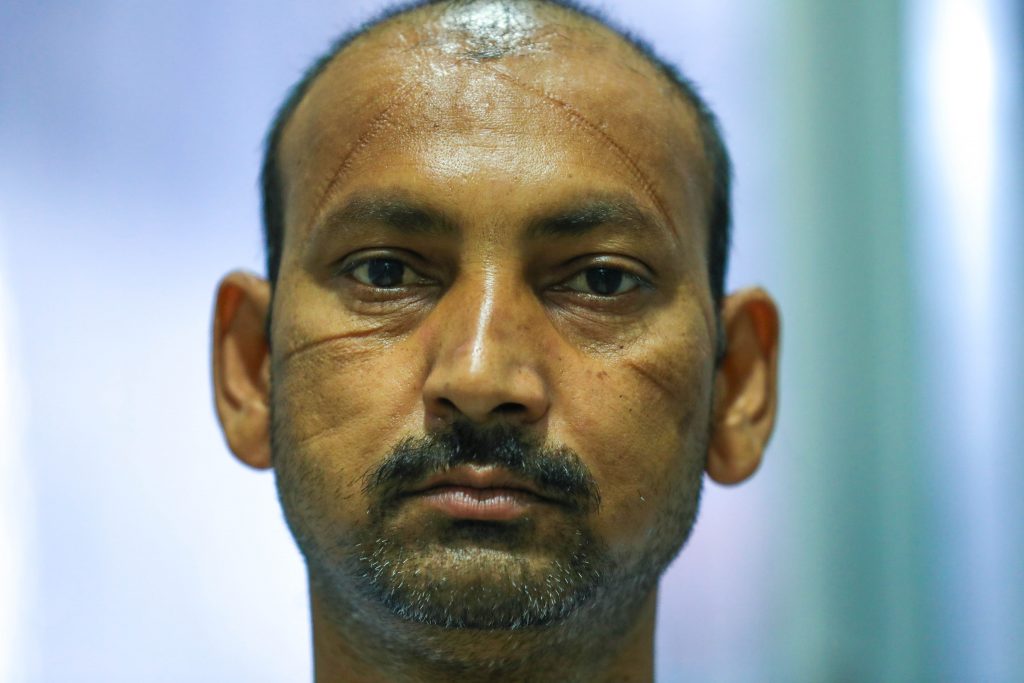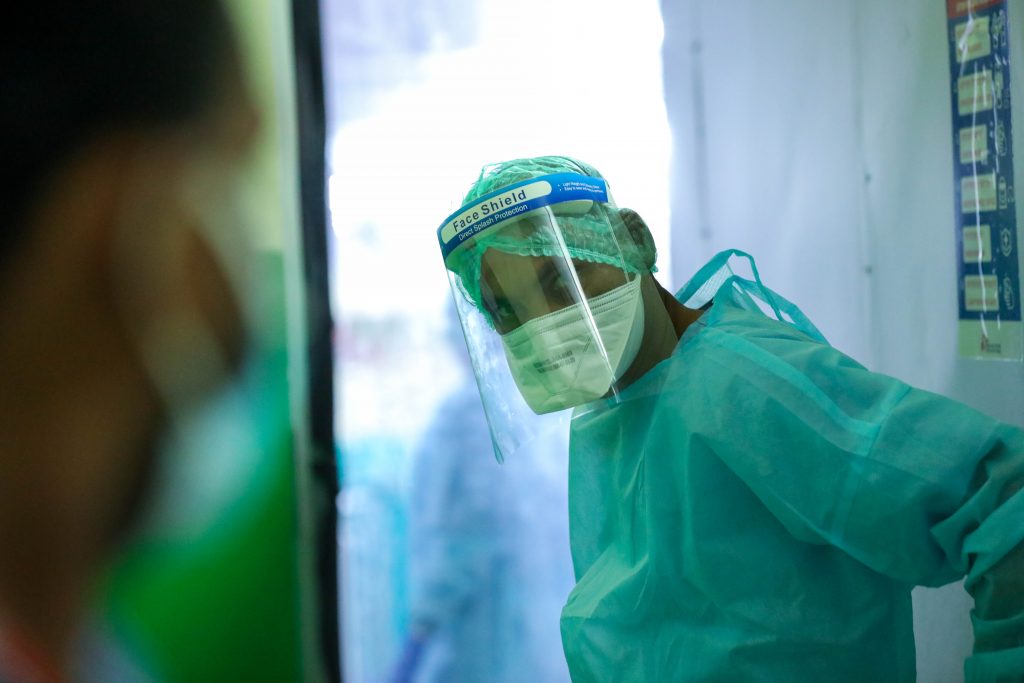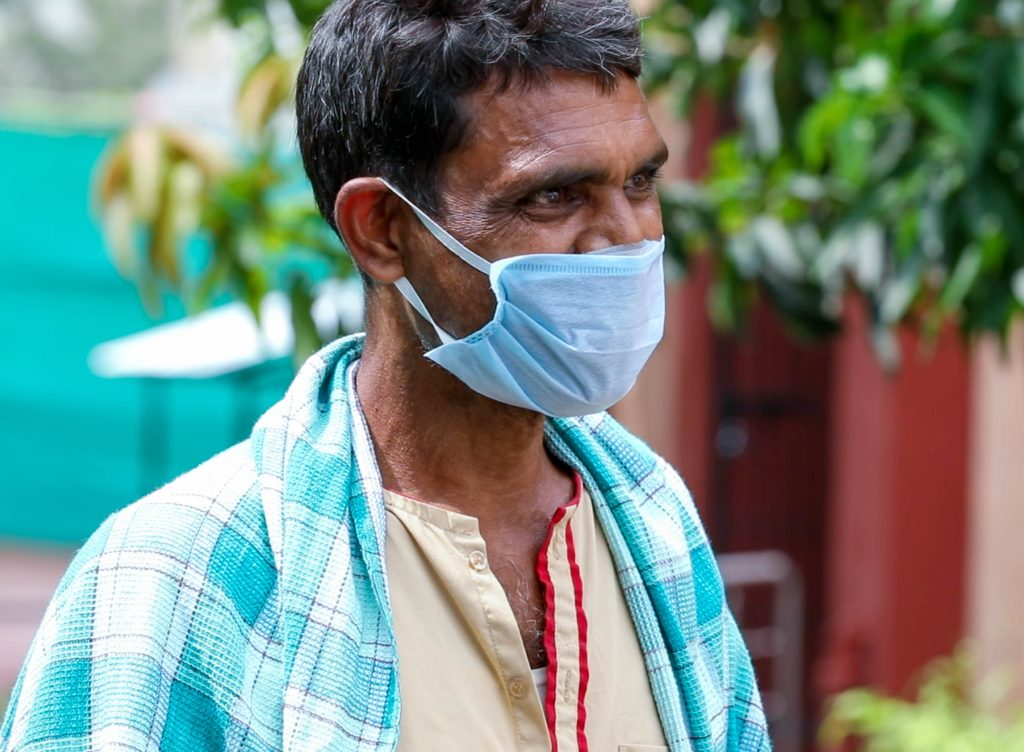In mid-June, Médecins Sans Frontières/Doctors Without Borders (MSF) opened a 100-bed COVID-19 treatment centre in Patna, the capital of Bihar state in northeast India.
As coronavirus cases continue to surge across the country (1,6 million cases as of 31 July), we talk to MSF workers and patients living and working on the frontline. They explain the challenges, fears and hopes as the situation evolves in one of India’s most populated states.
Photos by Garvit Nangia/MSF
“Stigma and misinformation are the biggest challenges we are facing”
Dr Pooja Iyer, Mental Health and Health Promotion Manager
“We have been through a very tough period of lockdown. It has taken a tremendous toll on people’s mental health. Although many people recover, the general impression in the community is that COVID-19 is very deadly. So it’s very important to support them during this process and give them examples where people recovered.
The role of the counsellors is to educate the patient and talk about what COVID-19 is, so that they are able to share their experiences, feelings, fears and anxieties. During the counselling process, we run educational interactive sessions using games and videos.
The strongest challenge that we are facing is related to stigma. There are many patients who have experienced stigma because they tested positive and this stigmatisation also affected their relatives. Another challenge is misinformation. We are trying our best to change people’s habits and thoughts.”
“We try to change patients’ anxieties into hope”
Mohit Siwach, Lay Counsellor
“Everyone in Patna knows someone who has had COVID-19. There is an overwhelming sense of hopelessness and fear. We try to change patients’ anxieties into hope.
As soon as I enter the ward wearing the personal protective equipment (PPE), it takes me an hour to readjust to the ‘new normal’ way of providing guidance and counselling through face shields and masks.
I recently spoke to a patient who lost her father and I had to comfort her through hand signals and body movements.
This is not how I would ideally approach patients as a counsellor. However, it is immensely gratifying to find a way to change people’s fear into a sense of hope, despite the challenges.”
Kundan Kumar, Lay Counsellor
Patients in the ward always ask for warm water, which is something they have been told cures COVID-19. Our team works with patients and their families about how to get the right information.
“Every worker plays an important role”
Deepak Kumar, Hygiene Worker
“I travel for an hour to get to work every day at MSF’s treatment centre in Patna. I believe the work we do really matters right now. Every worker plays an important role, regardless of if they are doctors or sanitation workers.
In our case, the entire team understands the life-saving work we do by ensuring infection control and waste disposal, so that patients are safe and receive the best medical care during the pandemic.
Working in protective equipment for 12 hours is difficult and sometimes you fear that even the tiniest exposed body part can compromise you, so we are in a constant state of alert.
But I am not scared. I am proud of the work I am doing for my state.”
Tulsi Devi, hygiene worker
“I travel 40 km every day from my village to the treatment centre. I have been working here since it opened, and now I understand what it means to be on both sides.
I contracted COVID-19 while performing my duties to keep the area clean for patients. I could not quarantine at home because 10 of us live in small quarters with no place for isolation.
While recovering, I somehow felt that I could finally take a breath. You feel so trapped while you are in PPE, struggling to breathe. As soon as you wear it, the seriousness of the situation dawns on you and you become aware of the risk of infection. I instantly feel anxious, but as you work through the day, you realise how important hygiene work is to prevent the spread of the disease.”
Bijay Kumar, Hygiene Worker
My duty is to clean and sanitise the ward and I end up taking some of those habits of infection control home to my community, too.
Being in PPE for 12 hours is hard. We get rashes on our faces and headaches due to the pressure from the face shield.
“The virus won’t end soon but those who take precautions will not catch it easily”
Rajkumar, Patient
“I was selling vegetables in the market when a team of doctors came and tested us. After a day, I got a message that I was positive for COVID-19, then I went to the hospital.
I used to tell my family not to worry about me. Instead, they should take the precautions I learned here like social distancing, how to wear a mask, how to keep your face covered, or if we have to talk to somebody, how much distance we need to maintain.
Therefore, I could take care of myself and my family. Everyone who is watching TV or reading about COVID-19 in newspapers, understands that this is a dangerous disease. This virus won’t end soon, but those who maintain physical distance and take the necessary precautions will not catch it easily.”


